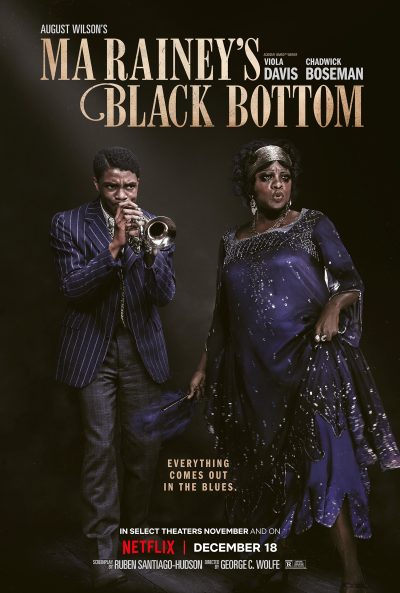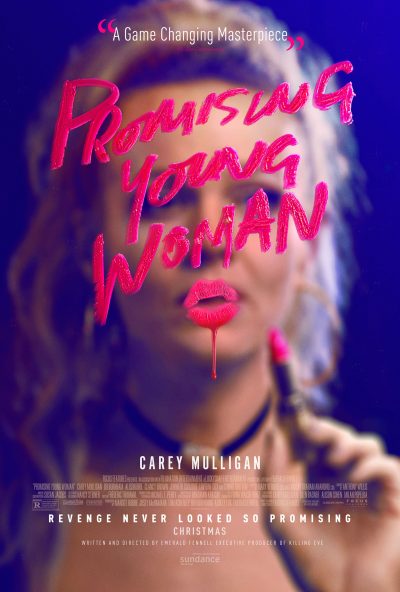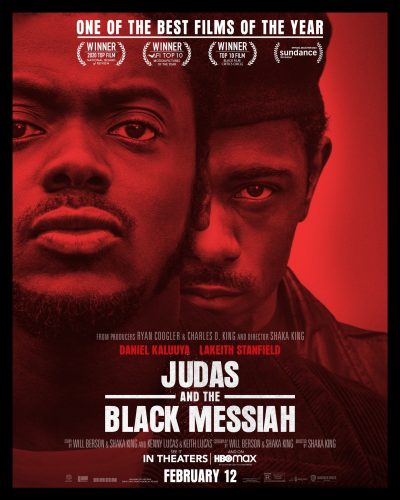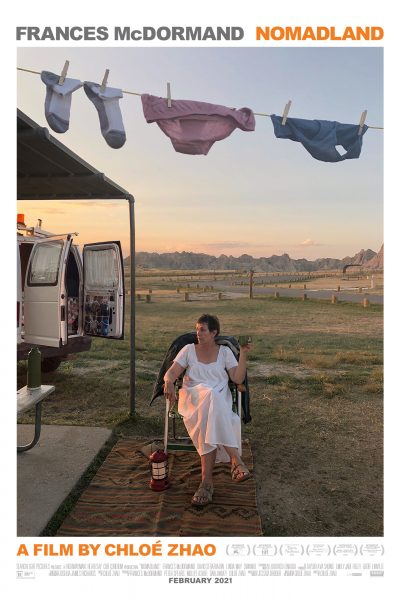It’s that time of year again – time for my predictions of the winners at the upcoming annual Academy Awards. While several of the likely winners have come into view, a few are still up for grabs. So, with that said, here are my picks for who will take home statues in the top six categories this year:
Best Actor
The Field: Anthony Hopkins, “The Father”; Chadwick Boseman, “Ma Rainey’s Black Bottom”; Gary Oldman, “Mank”; Riz Ahmed, “Sound of Metal”; Steven Yeun, “Minari”

Who Will Likely Win: Chadwick Boseman. This is a fairly solid lock. Boseman has won virtually every honor during this year’s awards season, and, despite his upset loss to Anthony Hopkins at the recent BAFTA Awards, his status as favorite should hold on Oscar night. So why will Boseman win? For starters, it’s the best performance in this category. It’s also the best performance of Boseman’s career. And, lastly, this is the final opportunity the Academy will have to honor him, something that should have happened a long time ago (especially for his portrayal of soul singer James Brown in “Get On Up” (2014), a performance for which he was inexcusably ignored). Ironically, this is the first Oscar nomination Boseman has received, and it’s likely Academy voters will not only want recognize a fine performance, but also attempt to atone for past oversights.
Who Should Win (Based on the Nominees): Chadwick Boseman, though good cases could be made for both Riz Ahmed and Anthony Hopkins (but don’t expect that to happen).
Who Should Win (Based on All Eligible Candidates): Chadwick Boseman, for the reasons cited above.
Possible Dark Horses: Riz Ahmed and Anthony Hopkins. These are the only performers to have bested Boseman this year – Ahmed in the National Board of Review competition and Hopkins at the BAFTA Awards. It would take a lot for either of them to slip in as the winner at the Oscars, though, and it’s highly unlikely that will happen.
Also-Rans: Anyone who isn’t Chadwick Boseman.
Who Should Have Been Left Out: No one in my view, though some have said Steven Yeun. However, I can’t say I agree with that assessment.
Who Else Should Have Been Considered: Several other noteworthy performances were deserving of consideration here, most notably Delroy Lindo for “Da 5 Bloods,” who was excluded for virtually every other awards competition this year, much to the consternation of many moviegoers. Others who merited attention include Tahar Rahim for “The Mauritanian,” Mads Mikkelsen for “Another Round” (“Druk”), Hugh Jackman for “Bad Education,” Louis Gossett Jr. for “The Cuban” and Rob Morgan for “Bull.”
Snubs: Delroy Lindo, without a doubt (and that goes for all of the other awards contests this year, too). Some have said that the exclusion of Mads Mikkelsen was a snub as well, an observation that I believe is up for debate, even though his performance was worthy of consideration.
Best Actress
The Field: Andra Day, “The United States vs. Billie Holiday”; Carey Mulligan, “Promising Young Woman”; Frances McDormand, “Nomadland”; Vanessa Kirby, “Pieces of a Woman”; Viola Davis, “Ma Rainey’s Black Bottom”

Who Will Likely Win: Pick someone! This is a field up for grabs. Each nominee except Vanessa Kirby has won an award in this year’s previous competitions, most of which featured diverse candidate fields that didn’t match up actress for actress from contest to contest. If I had to venture a guess (and it is indeed a guess), I’d probably give the edge to Carey Mulligan, who turns in the best performance of her career (despite the questionable nature of her film’s character). Viola Davis and Frances McDormand are both recent winners, which likely rules them out, especially since these performances weren’t quite up to the level of their most recent victories. And Andra Day and Vanessa Kirby – though both stellar in their portrayals – probably don’t have enough clout with voters to pull off a win (though they’ve certainly made significant down payments toward future recognition). That leaves Mulligan, who’s likely to slide in as winner, albeit somewhat by default. Interestingly, Mulligan was considered the frontrunner coming into awards season, even though her campaign to take home hardware hasn’t lived up to expectations, winning only the Critics Choice Award thus far (and not even earning a BAFTA nomination in her native homeland). Nevertheless, she may end up having the last laugh on Oscar night. Of course, given the wide open nature of this category, I could be completely wrong about all this.
Who Should Win (Based on the Nominees): Andra Day. This was arguably the most demanding of the performances, requiring solid singing and acting, and Day certainly rose to the occasion. And, even though the same could be said of Viola Davis in her role, Day won the day in this contest.
Who Should Win (Based on All Eligible Candidates): There were many viable candidates for this prize, including a number of performers who weren’t nominated, most notably Radha Blank for “The Forty-Year-Old Version,” Rosamund Pike for “I Care a Lot,” Sophia Loren for “The Life Ahead,” Barbara Sukowa for “Two of Us” (“Deux”), Michelle Pfeiffer for “French Exit,” Susan Sarandon for “Blackbird” and Jasna Djuricic for “Quo Vadis, Aida?” I’d still include Andra Day in this group, as well as Vanessa Kirby, though I can’t necessarily say the same for their other fellow nominees.
Possible Dark Horses: Given the nature of this category’s field, this could conceivably include virtually anyone.
Also-Rans: Again, virtually anyone.
Who Should Have Been Left Out: Frances McDormand. As dynamic an actress as she is, McDormand’s performance here was something a let-down. Her character’s low-key nature didn’t mesh well with her typical spitfire style of acting. Thus this is a case where an experiment in playing against type just didn’t work, and this portrayal should have been excluded from the field.
Who Else Should Have Been Considered: In addition to the aforementioned performances by Radha Blank, Rosamund Pike, Sophia Loren, Barbara Sukowa, Michelle Pfeiffer, Susan Sarandon and Jasna Djuricic, other worthy candidates included Pamela Mendoza for “Song Without a Name,” Tsai Chin for “Lucky Grandma,” Graciela Borges for “The Weasels’ Tale” (“El cuento de las comadrejas”), Katja Herbers for “The Columnist” (“De Kuthoer”), Sally Hawkins for “Eternal Beauty,” Kara Hayward for “To the Stars,” Eliza Scanlen for “Babyteeth,” Lena Olin for “The Artist’s Wife” and Bukky Bakray for “Rocks.”
Snubs: There were no obvious snubs in this category, but those who weren’t nominated were certainly just as deserving as those who were.
Best Supporting Actor
The Field: Daniel Kaluuya, “Judas and the Black Messiah”; LaKeith Stanfield, “Judas and the Black Messiah”; Leslie Odom Jr., “One Night in Miami…”; Paul Raci, “Sound of Metal”; Sacha Baron Cohen, “The Trial of the Chicago 7”

Who Will Likely Win: Daniel Kaluuya. As far as the major category races are concerned, this is about as solid a lock as any of them can get. Kaluuya has won in this category in every major contest this awards season, and I don’t see that changing on Oscar night. I can only envision one possible scenario where this wouldn’t happen, but I believe it to be highly unlikely (see the Dark Horse discussion below).
Who Should Win (Based on the Nominees): Daniel Kaluuya. While there are many impressive performances in this pool of nominees, Kaluuya is the cream of the crop and deserves to win.
Who Should Win (Based on All Eligible Candidates): Kingsley Ben-Adir. Even though there are strong performances in the field of candidates, there are many other portrayals that were worthy of nominations, and that’s certainly the case for Kingsley Ben-Adir for his role as civil rights activist Malcolm X in “One Night in Miami….” I sincerely believe he gave the strongest male supporting performance of the year, and his exclusion from the field of nominees is an oversight and a disappointment. He should be in the field and the winner of the award.
Possible Dark Horse: Leslie Odom Jr. At the start of awards season, prognosticators labeled Odom the prohibitive favorite, but that prediction has not materialized. And, in all likelihood, that will hold true again here with the exception of one possible scenario that might allow him to slip in as the winner. This is the first competition in which Kaluuya is opposed by his co-star, LaKeith Stanfield. Should Kaluuya and Stanfield split the vote – a possibility, though remote – that could open the door for Odom. Don’t look for this to happen, but it can’t be completely ruled out.
Also-Rans: LaKeith Stanfield, Paul Raci and Sacha Baron Cohen. They should consider their nominations their awards.
Who Should Have Been Left Out: Leslie Odom and LaKeith Stanfield. In Odom’s case, the performance was good, though I don’t believe that he was as strong as his co-stars (Kingsley Ben-Adir, Aldis Hodge and Eli Goree); I would have much rather seen his nomination go to one of his other cast members or to one of the many other performers in other films. As for Stanfield, my reason for excluding him here has nothing to do with his performance per se but because it’s the wrong category for him; if he were to have been nominated, it should have been in the lead actor category, not supporting, an outcome that, regrettably, he had nothing to do with.
Who Else Should Have Been Considered: There are many other candidates deserving of consideration here. Obviously they all could not have been included, but it certainly was a strong year for supporting actor performances, as evidenced by this list of noteworthy portrayals: Ralph Fiennes for “The Dig”; Peter Y. Kim and Reed Birney for “The Forty-Year-Old Version”; Hugh Laurie, Peter Capaldi and Ben Whishaw, all for “The Personal History of David Copperfield”; Alan Kim for “Minari”; Peter Dinklage for “I Care a Lot”; Aldis Hodge, Kingsley Ben-Adir and Eli Goree, all for “One Night in Miami…”; Ibrahima Gueye for “The Life Ahead”; Glynn Turman for “Ma Rainey’s Black Bottom”; Brian Dennehy for “Driveways”; Charles Dance and Arliss Howard for “Mank”; Bruce Dern for “The Artist’s Wife”; William Hurt, Peter Fonda, Ed Harris and Samuel L. Jackson, all for “The Last Full Measure”; Chadwick Boseman for “Da 5 Bloods”; Frank Langella for “The Trial of the Chicago 7”; and Ben Mendelsohn and Toby Wallace for “Babyteeth.”
Snubs: There were no obvious snubs in this category, but the exclusion of Kingsley Ben-Adir was indeed disappointing.
Best Supporting Actress
The Field: Amanda Seyfried, “Mank”; Glenn Close, “Hillbilly Elegy”; Maria Bakalova, “Borat Subsequent Moviefilm”; Olivia Colman, “The Father”; Youn Yuh-Jung, “Minari”

Who Will Likely Win: Youn Yuh-Jung. Though her momentum was slow to start this awards season, Youn has been gaining steam in the most recent competitions and appears to be pulling away – and deservedly so. Though she has some serious competition in this category, she should prevail on Oscar night.
Who Should Win (Based on the Nominees): Youn Yuh-Jung, though good cases could be made for Glenn Close and Amanda Seyfried (but don’t expect that to happen).
Who Should Win (Based on All Eligible Candidates): Youn Yuh-Jung, though good cases could be made for Glenn Close and Amada Seyfried, as well as for un-nominated Ellen Burstyn for “Pieces of a Woman.”
Possible Dark Horses: Glenn Close and Maria Bakalova. Having been nominated eight times and never won (and having lost at the wire for her performance in “The Wife” (2018)), Close may be seen as something of a sentimental favorite who could pull it out of the fire, though it’s somewhat unlikely. And Bakalova, winner of this year’s Critics Choice Award in this category, can’t be ruled out either, though Academy voters may take issue with her character as being an inappropriate choice (i.e., one that sends the wrong message and doesn’t fit the Oscar image).
Also-Rans: Olivia Colman. While her performance here is capable, it really isn’t Oscar caliber, especially when compared to her award-winning performance in “The Favourite” (2018). I believe her nomination resulted largely from being swept up in the hype for this film.
Who Should Have Been Left Out: Olivia Colman. Again, even though this is a solid performance, this is a slot that would have been better opened up to a more qualified candidate.
Who Else Should Have Been Considered: There were many performances in this category worthy of nomination, most notably Ellen Burstyn for “Pieces of a Woman.” Others worthy of consideration included Jodie Foster for “The Mauritanian,” Dianne Wiest for “I Care a Lot,” Allison Janney for “Bad Education,” Valerie Mahaffey for “French Exit,” Martine Chevallier for “Two of Us” (“Deux”), Helena Zengel for “News of the World,” Tilda Swinton for “The Personal History of David Copperfield,” Essie Davis for “Babyteeth,” and Kristen Scott Thomas and Ann Dowd for “Rebecca.”
Snubs: Ellen Burstyn, without a doubt.
Best Director
The Field: Chloé Zhao, “Nomadland”; David Fincher, “Mank”; Emerald Fennell, “Promising Young Woman”; Lee Isaac Chung, “Minari”; Thomas Vinterberg, “Another Round” (“Druk”)

Who Will Likely Win: Chloé Zhao. This Hollywood favorite has won virtually every major directorial award so far this year, and this trend should hold on Oscar night. Zhao has been a much-applauded rising star for several years, and the Academy has been aching to honor her accordingly, which should happen this time out.
Who Should Win (Based on the Nominees): Lee Isaac Chung. “Minari” is handily the best picture of the year, and its director deserves the accolades that go with that. Unfortunately, he’s likely to be bested by frontrunner Zhao, who is widely regarded as one of the best filmmakers in the business these days, a reputation that I find somewhat exaggerated. To be sure, “Nomadland” is her best work to date, though I don’t feel it’s up to the level needed to capture this award. Chung, however, meets the standard and truly deserves to win.
Who Should Win (Based on All Eligible Candidates): Lee Isaac Chung, for the reasons stated above.
Possible Dark Horses: Lee Isaac Chung, again, for the reasons stated above. I sense a growing groundswell of support for this film, and Chung could pull an upset here (though it’s a long shot).
Also-Rans: David Fincher, Emerald Fennell and Thomas Vinterberg. They should consider their nominations their awards. The works of Fincher and Vinterberg are a bit too fringe to garner the requisite support they need to win, and Fennell’s film doesn’t rise up high enough to meet the standard for this award.
Who Should Have Been Left Out: Emerald Fennell, David Fincher and Thomas Vinterberg. From my standpoint, Fennell’s “Promising Young Woman” is one of the most overrated offerings of the year and, except for Carey Mulligan’s fine performance, isn’t worthy of the praise or nominations that have been heaped upon it, including in this category. Fincher’s “Mank” is certainly a well-crafted period piece, but viewing it requires so much pre-existing knowledge of its subject matter that many find it inscrutable, not an especially considerate accommodation to awaiting audiences. And Vinterberg’s “Another Round” (“Druk”) is in many ways just plain weird, inventive in some regards but not up to the standards of his best work. These three slots would have been better reserved for other filmmakers.
Who Else Should Have Been Considered: There are several directors who should have easily made the cut in this category, most notably Regina King for “One Night in Miami…,” Aaron Sorkin for “The Trial of the Chicago 7” and Darius Marder for “Sound of Metal.” Other lesser known candidates include Radha Blank for “The Forty-Year-Old Version,” Ital Tal for “God of the Piano,” Christos Nikou for “Apples” (“Mila”), Mohammad Rasoulof for “There Is No Evil” (“Sheytan vojud nadarad”), J Blakeson for “I Care a Lot,” Filippo Meneghetti for “Two of Us” (“Deux”), Kim Yong-hoon for “Beasts Clawing at Straws” (“Jupiragirado japgo sipeun jimseungdeul”) and Jasmila Žbanić for “Quo Vadis, Aida?”
Snubs: Regina King and Aaron Sorkin. They really deserved to be included.
Best Picture
The Field: “Judas and the Black Messiah,” “Mank,” “Minari,” “Nomadland,” “Promising Young Woman,” “Sound of Metal,” “The Father,” “The Trial of the Chicago 7”

What Will Likely Win: “Minari.” I know I’m going way out on a limb with this prediction, but something is intuitively telling me that this will walk away with the statue in an upset. The smart money at this point is on “Nomadland” in light of its track record throughout awards season, and that prophecy could indeed be fulfilled. However, I feel as though “Minari” has not yet received the degree of kudos it deserves based on previous competitions, and I’m sensing a breakthrough here, especially if Chloé Zhao picks up her Oscar in the director category, leaving the door open for “Minari” to snatch away the top prize. This film has the message that the country needs right now, and I’m sensing that Academy voters are quietly beginning to pick up on that. It offers a message of hope, unlike “Nomadland,” which delivers a message of reconciled despair, the wrong signal to send at this time and not in line with the image-conscious leanings of many Oscar voters. Upsets and splits in the best director/best picture mix have become more common in recent years (“Moonlight” defeating “La La Land,” “Green Book” defeating “Roma,” “Parasite” defeating “1917”), so they’re not without precedent, and I wouldn’t be surprised if it happens again here. My only hope is that this predicted outcome is based more on a genuine gut feeling and not wishful thinking.
What Should Win (Based on the Nominees): “Minari.” Flat out, hands down, no questions asked, this is the best and most deserving release of 2020, and it should be regarded as such by the Academy.
What Should Win (Based on All Eligible Candidates): “Minari.” Need I say more?
Possible Dark Horses: “The Trial of the Chicago 7.” Given the battle for the hearts and minds of Academy voters, the two top contenders could conceivably cancel out one another, leaving the door open for another candidate, and “Chicago 7” could be it. The picture’s chances received a potent boost when it won the Screen Actors Guild Award for best ensemble cast, often a strong indicator of which film will take home the top prize on Oscar night, given that a huge percentage of Academy voters come from the acting camp. However, I believe this is still a long shot.
Also-Rans: “Judas and the Black Messiah,” “Mank,” “Promising Young Woman,” “Sound of Metal” and “The Father.” None of these offerings has enough gas in the tank to come out on top.
What Should Have Been Left Out: “Judas and the Black Messiah,” “Mank,” “Promising Young Woman,” “The Father,” and, despite its frontrunner status, “Nomadland.” Except for “Promising Young Woman,” which is only marginal at best, these four other releases are good films but not great ones – and, in my view, not material for this category.
What Else Should Have Been Considered: “One Night in Miami…” and “The Forty-Year-Old Version” are better than many of the other nominated contenders and should have been included. Others that merited attention include “Blackbird,” “Two of Us” (“Deux”), “God of the Piano,” “Apples” (“Mila”), “There Is No Evil” (“Sheytan vojud nadarad”), “I Care a Lot” and “Quo Vadis, Aida?”
Snubs: “One Night in Miami….” This inspiring and enlightening offering deserved a nomination, and its exclusion was a definite snub.
The Oscars will be handed out in televised ceremonies on Sunday April 25. I’ll post my report card on these predictions thereafter. Enjoy the show!
(Oscar® and Academy Award® are registered trademarks of the Academy of Motion Picture Arts & Sciences.)
Copyright © 2021, by Brent Marchant. All rights reserved.

No comments:
Post a Comment